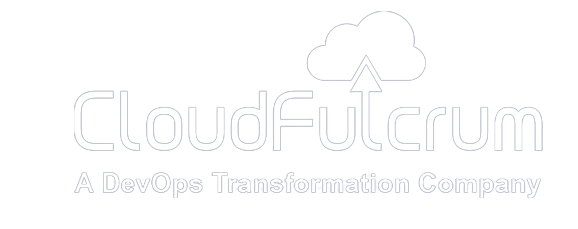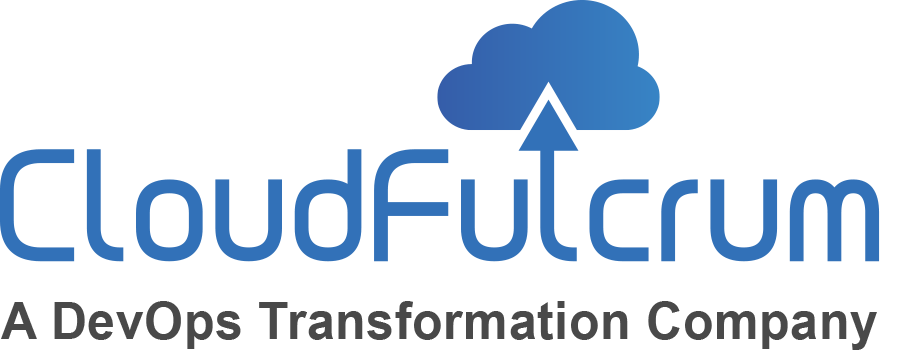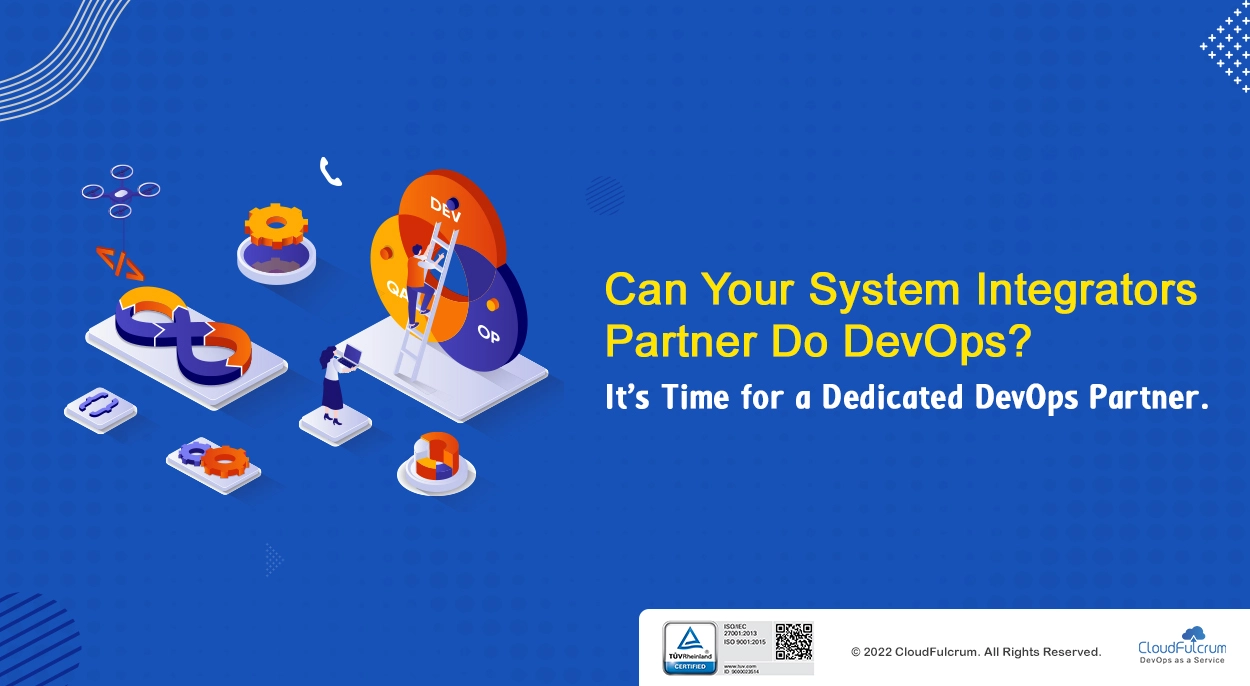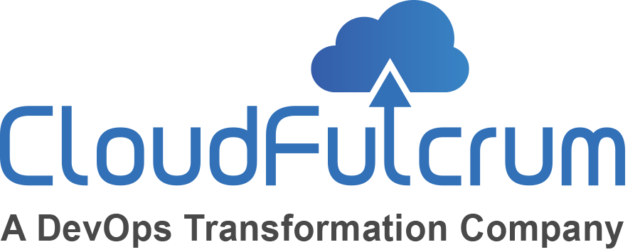Per the Global Market Insights report, in 2021 the DevOps market size exceeded $7 billion and is further expected to grow at a CAGR of over 20% from 2022 to 2028 to a value of over $30 billion. The report further adds that in the United States alone, in 2021, 67% of the DevOps market value was made up of DevOps solutions while 37% accounted for services. By 2028, the market share for DevOps services is expected to further expand to around 55% while 45% would be accounted for by tools.
This shows how much steam DevOps has picked up. What does this spell for the system integrators? Is DevOps going to kill their business? Or will they adapt to the new trends and hop on board? When that happens, the question before businesses is – can their system integrators partners do DevOps as efficiently?
The SI DevOps Resistance Conundrum
Digital transformation is indeed changing the way businesses work now. It’s no wonder DevOps approaches are changing as well in core manners in which DevOps will be driven. Most businesses still opt for core SI partners. The prevailing truth is that DevOps will kill system integrators in the long run. The situation on the ground, however, is more of the scepticism or resistance on the part of the SIs to join the specialized DevOps bandwagon.
A primary reason for this would be that a lot of business outsourcing deals or SI deals are generally driven by contracts. So, if DevOps isn’t in the contract, SIs won’t do it. If businesses themselves don’t address agility and DevOps right when the project is in the ideation stage itself, the SI partners either just won’t do it or charge businesses with a change order that is going to cost them more money.
However, the consideration of going for a dedicated DevOps partner over an SI also merits some thought because of these reasons:
- As a business, if you want to be able to get a code change back within 24 hours, you have to put that in the contract, or else you won’t get it. This whole concept goes against the ideology of DevOps itself. Most of the time you wouldn’t know if you would need a code change at all.
- If businesses wish to continue working with their SI partners to keep them moving in the right direction, they must lay out the foundation and the goals and get their buy-in to do this new way of work. However, if this sounds like too much work, it’s time you get yourself a dedicated DevOps partner!
CloudFulcrum is in the forefront of Salesforce DevOps revolution and offers “DevOps as a Service.” We are also a Copado implementation partner, offering “Copado as a Service.”
What to Look for in a Dedicated DevOps Partner?
Once businesses master DevOps, they wish to transition from the manual approaches and automate processes. They want to quickly bring DevOps culture and practices. However, if they have a qualified DevOps Services provider on board, which can go beyond bringing development tools into the cloud and can also offer a variety of services, the results would be a lot better.
Here is what you must look for in a DevOps provider.
- Leadership: Your business would need strong leadership whether your goal is to build a dedicated DevOps team or implement any DevOps initiative. Even if you end up outsourcing the entire roles, you’d still need someone to keep DevOps projects on track.
- Strategy: A qualified DevOps partner must be able to give you a comprehensive strategy to build a roadmap. The strategy must include these recommended steps
- Identification of objectives
- Building a business case
- Restructuring teams
- Updating processes
- Identifying and implementing the right tools
- Developing a collaborative, transparent, agile culture
- Culture: A DevOps consulting partner must be able to quell people’s fears about automation and job security and explain the “why” behind adopting DevOps. For many organizations, change can be tough and the right DevOps partner can aid the leadership in making a case for DevOps.
- Training: A DevOps consulting partner must be professionally trained by a certified institute. You just can’t pick up any partner to handle your large DevOps project.
- Risks: You must ensure that your DevOps partner uses the highest security policies, procedures, and technical safeguards. But you must also assume the risk factor. Every country’s law and regulation are different, especially when it comes to ownership, trademarks, and patents. That’s why it’s important to educate yourself about the procedures of legal protection. There are geopolitical risks to consider as well.
- Compliance: It’s imperative for orgs to ensure that their internal processes comply with standards like SOX, HIPAA, GDPR, etc. And with the culture of Continuous Delivery, businesses can deploy almost thousands of changes per week, which would make it challenging for compliance managers to keep up. Your DevOps partner must not only be proficient with the compliance laws and keep pace with the changes but also be aware of segregating responsibilities when it comes to processes and compliance.
Is It Time to Move on From Your SI for DevOps?
It’s entirely your call. System integrators are worth partnering with as they serve as a gateway to target businesses and help independent software vendors (ISVs) spend more time on product growth and close more deals, faster.
But the bigger an SI, the more fragmented the org structure and the more difficult it can be to tackle them. Plus, if they themselves take risks with the software, there could be room for error.
Choosing the right DevOps partner requires time and effort. But the resources you spend on it will greatly reduce the risks of choosing a vendor that does not comply with your goals, has inadequate technical skills, or does not follow security policies.
Here are some basic criteria to look for in your DevOps partners.
- Change management: Change management is essentially a more drawn-out process with longer turnaround times. In contrast, DevOps optimizes for small and frequent changes. Both can coexist, however. Orgs must define the change in terms of its scope, follow the change throughout the development lifecycle, and share change information with other systems and personnel. An expert DevOps partner must be able to understand how that change impacts other intersection points. Higher environments must be managed with specialized resources and here, a specialized DevOps partner would be more suitable than a traditional SI.
- Doing it right: A suitable DevOps partner should have the expertise in doing a lot of things right, such as following best practices for audits and regulatory compliances and setting up the change control processes.
- Segregation of responsibilities: DevOps’ agile approach means there are several processes to follow simultaneously – operationally as well as from the HIPAA and SOC compliances standpoint. There should be a clear segregation of responsibilities when choosing a perfect DevOps partner who understands the finer nuances of having well-defined roles.
Why Choose CloudFulcrum as Your DevOps Partner?
CloudFulcrum is a premium tooling partner in the entire Salesforce DevOps ecosystem. We have developed a series of DevOps accelerators that can be integrated into your existing systems effortlessly.
For instance, our various open-source plug-ins for Jenkins accelerate the deployments and testing of Salesforce applications:
- The lean deployments plug-in reduces the size of the deployment artifact by more than 90% and brings down the deployment errors significantly.
- The Dynamic Apex Test Detection brings the apex testing time across multiple sandboxes by > 95% as only the “required” tests are run.
Similarly, other accelerators for Copado and Azure have delivered several benefits – minimized deployment payload size, lean and faster deployments, and increased transparency and traceability.
CloudFulcrum Offers “Salesforce DevOps as a Service”, a purpose-driven advisory / managed services offering aimed at setting up a solid DevOps practice and accelerating the DevOps vision of customers. It includes DevOps assessment and maturity modeling, setting up CI/CD pipelines and quality gates, as well as enterprise dashboards.
CloudFulcrum can help you get started on the right path. Schedule a discovery call today!




